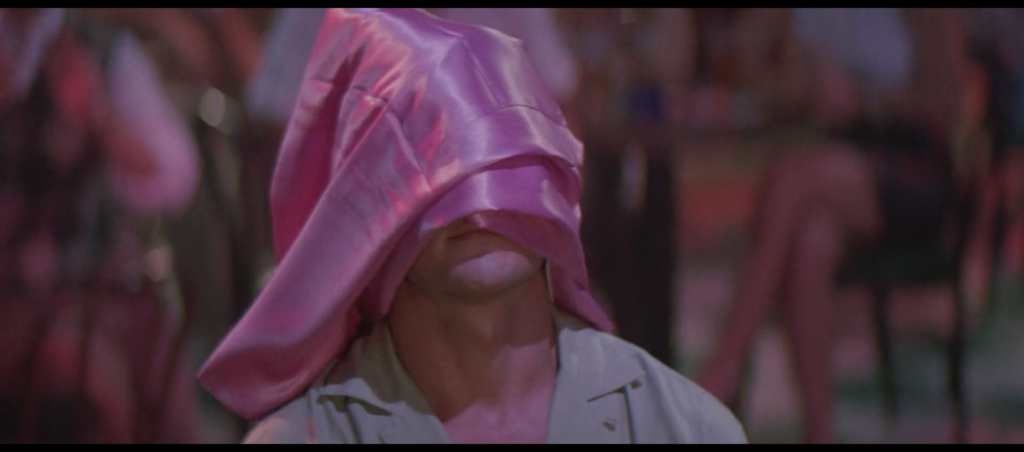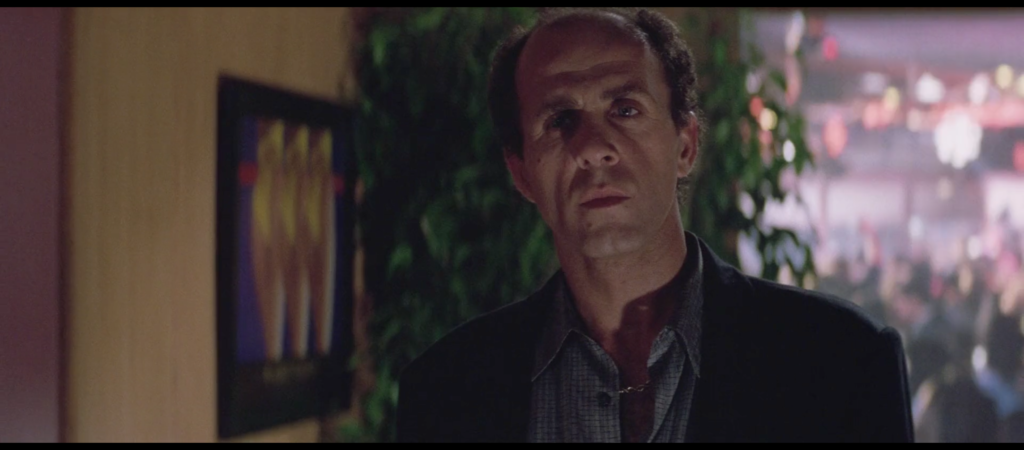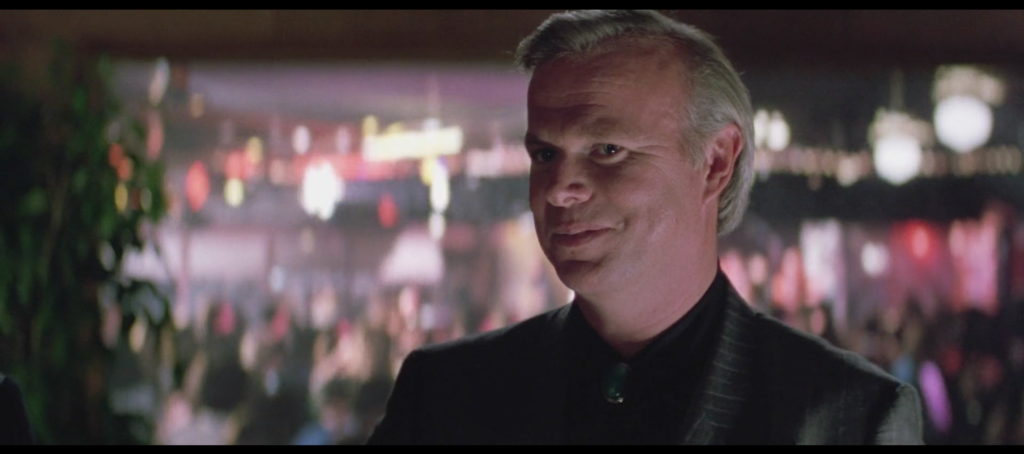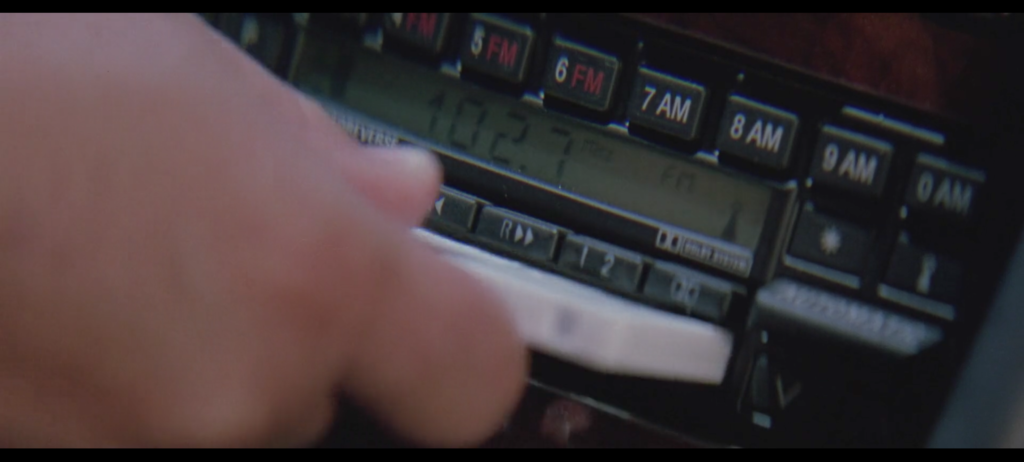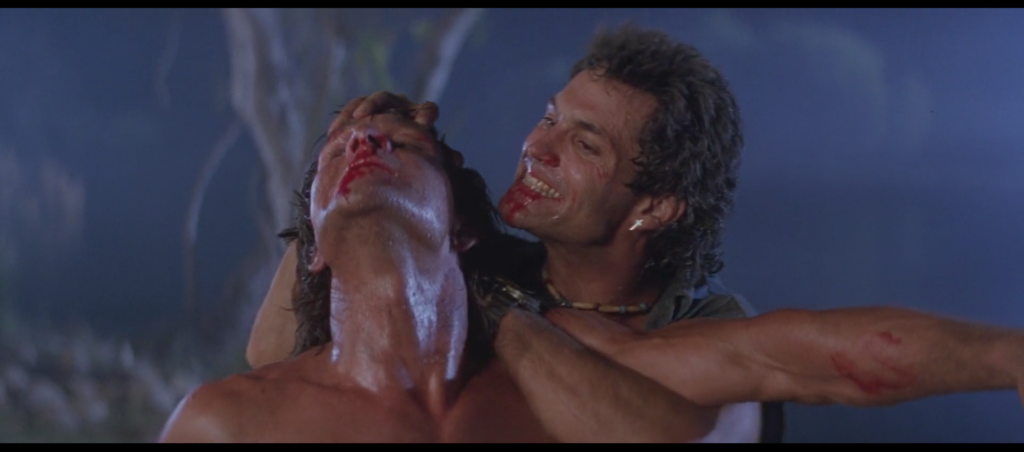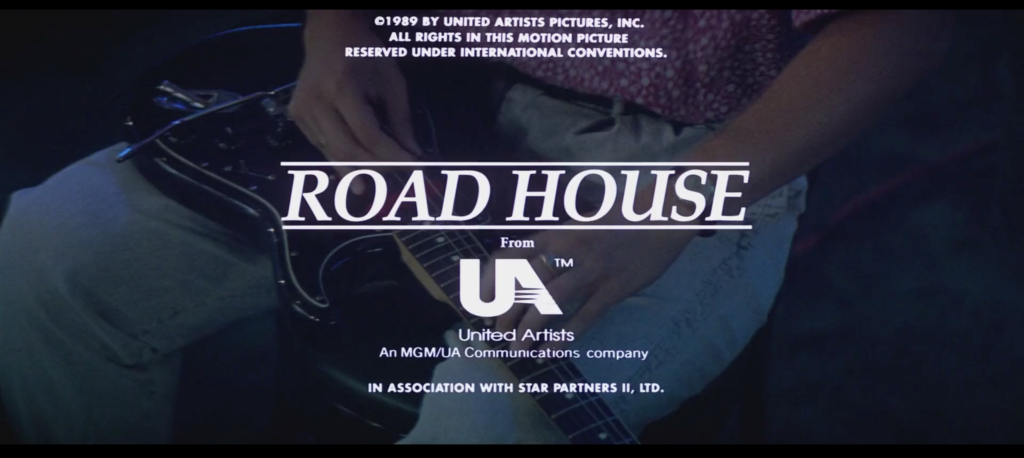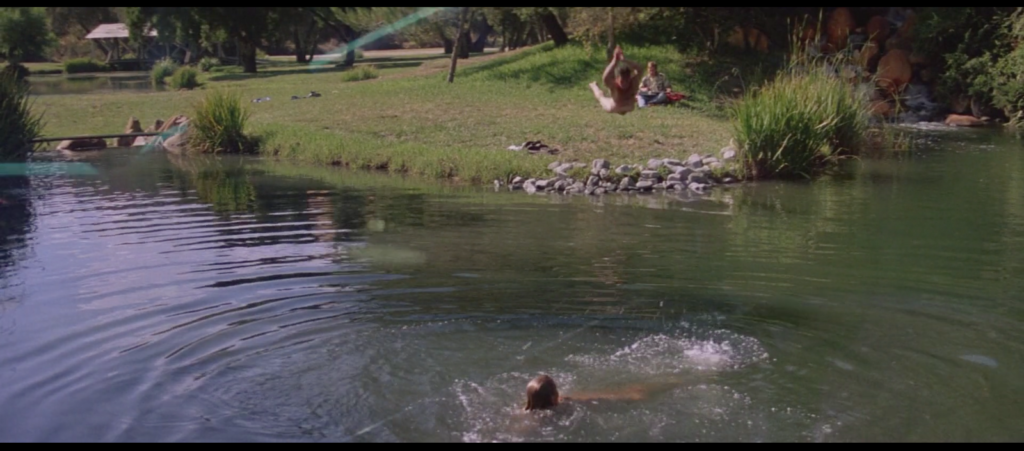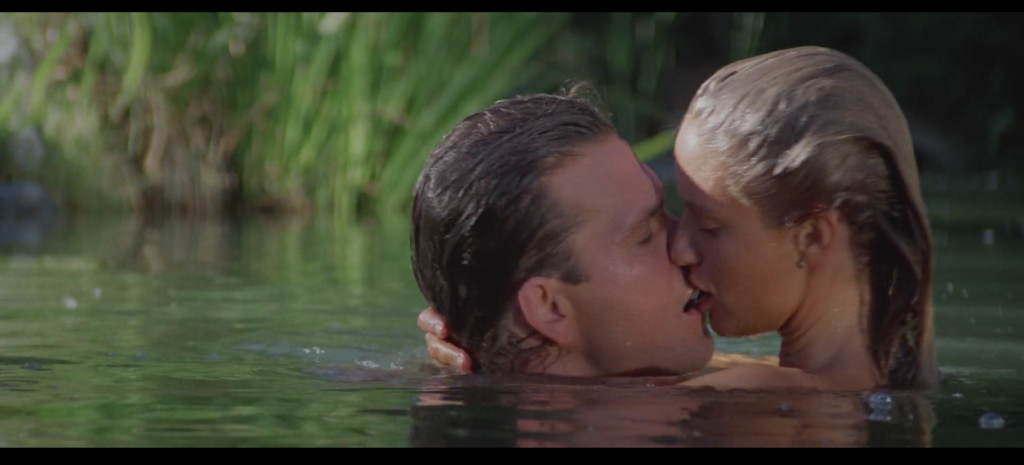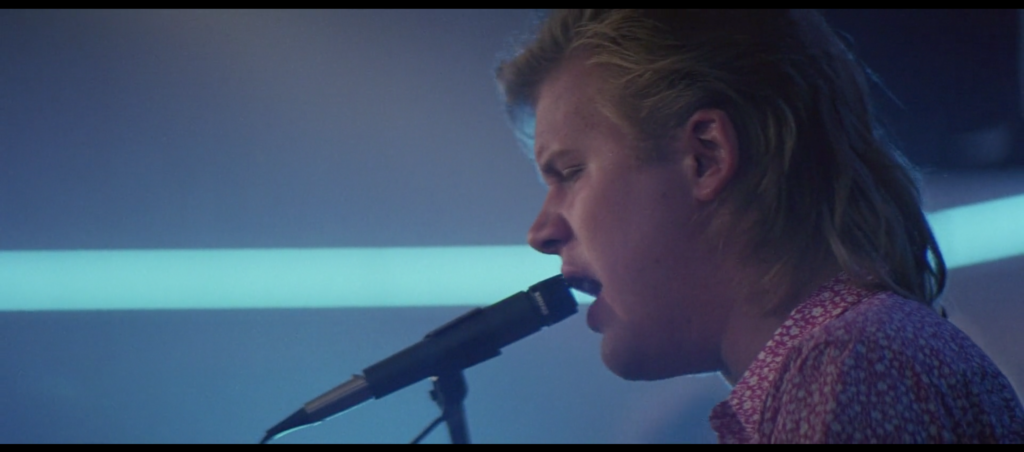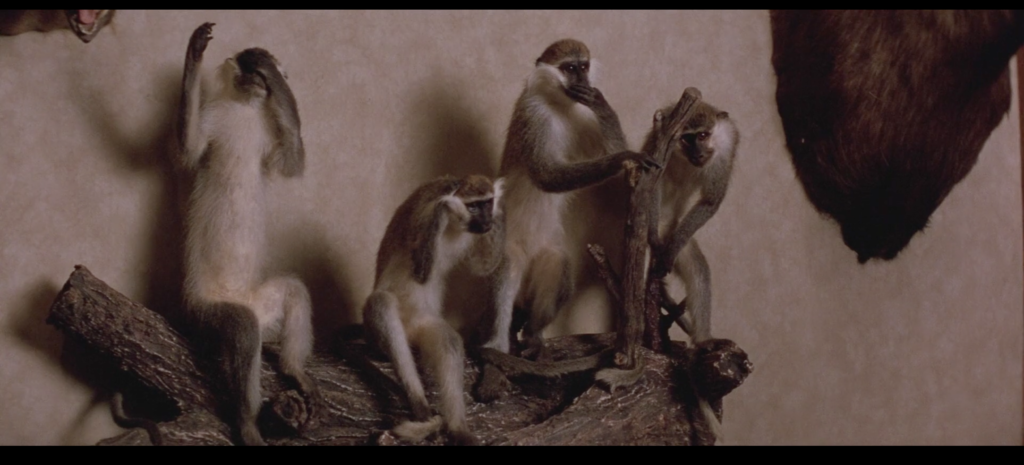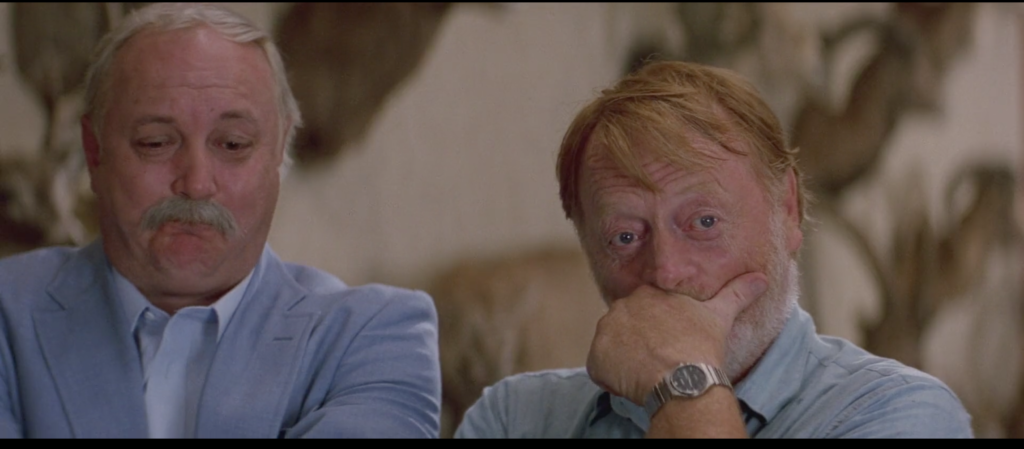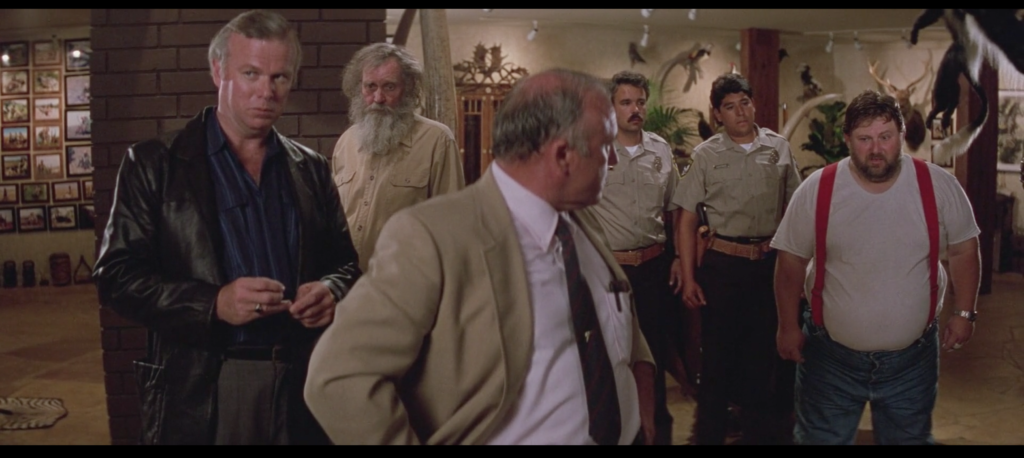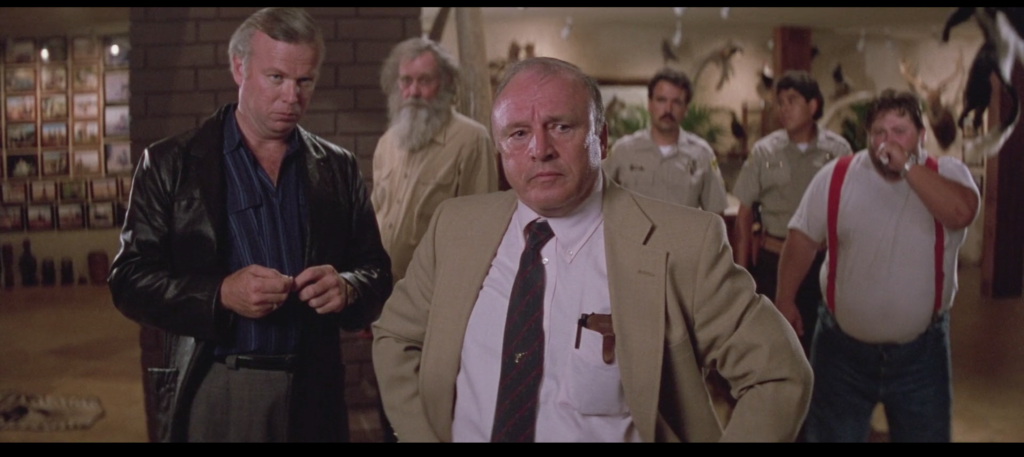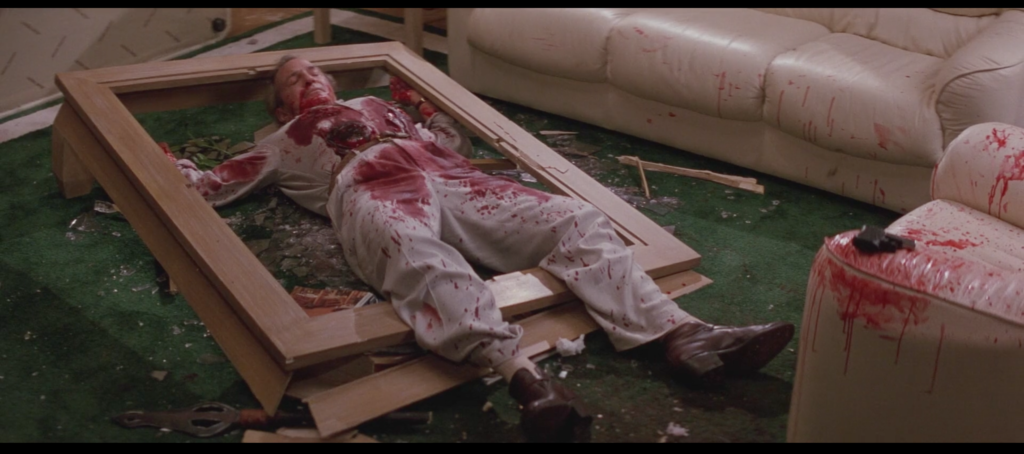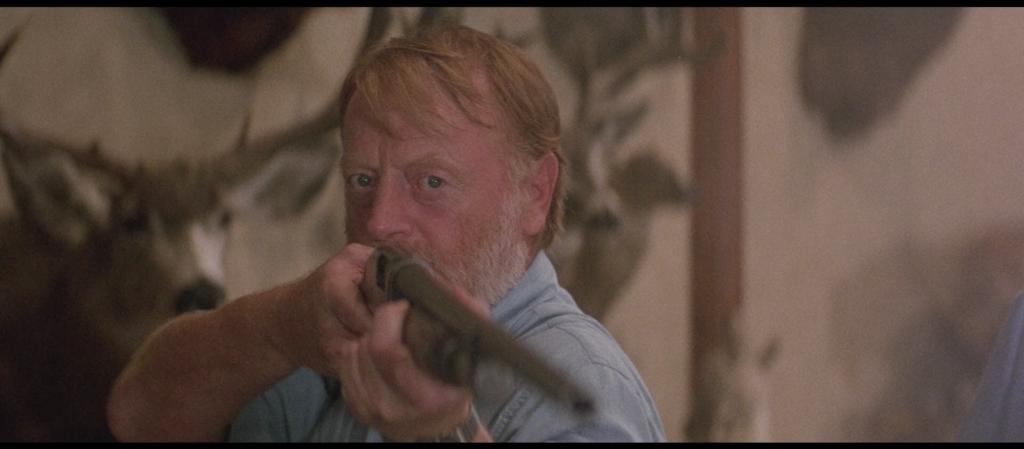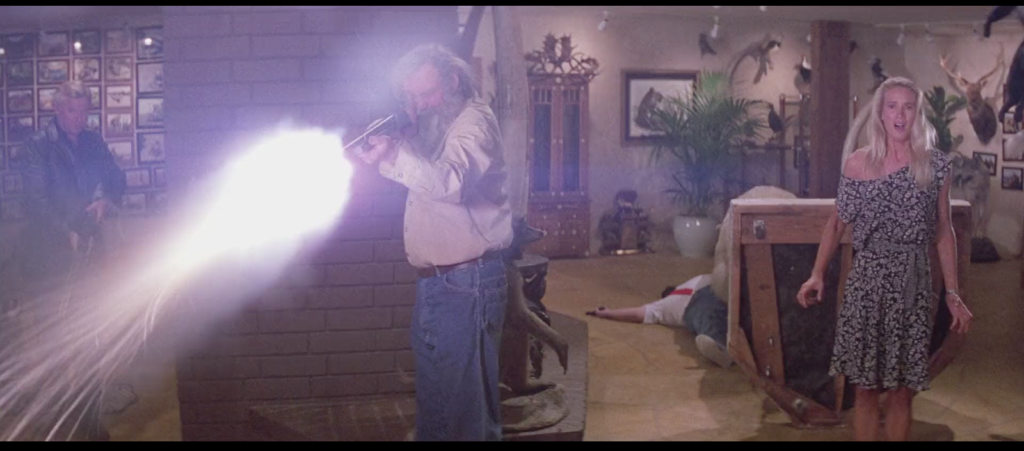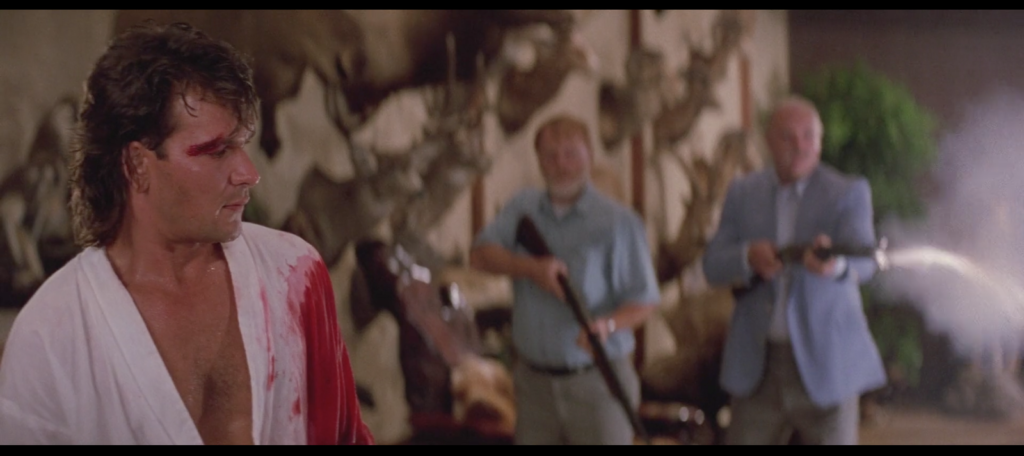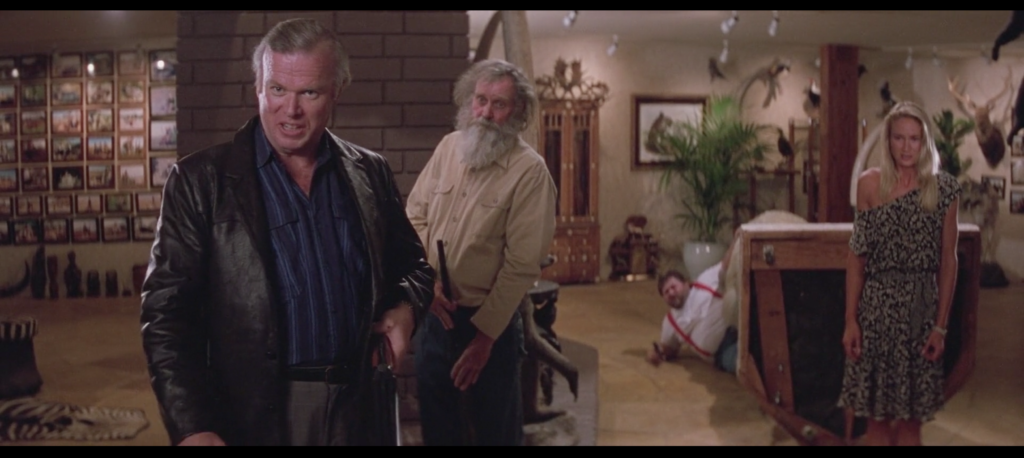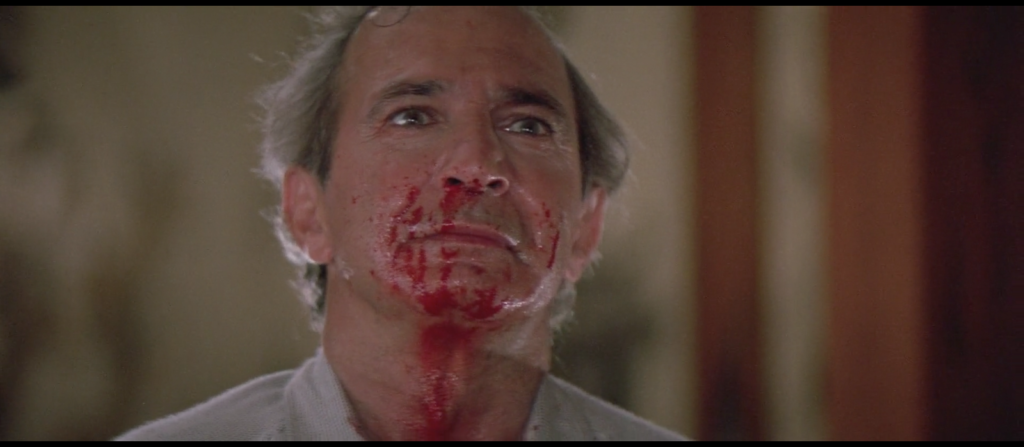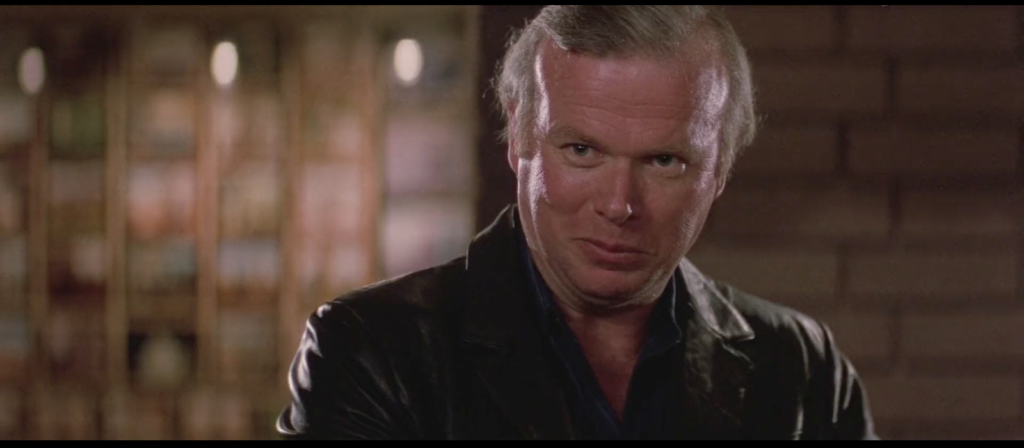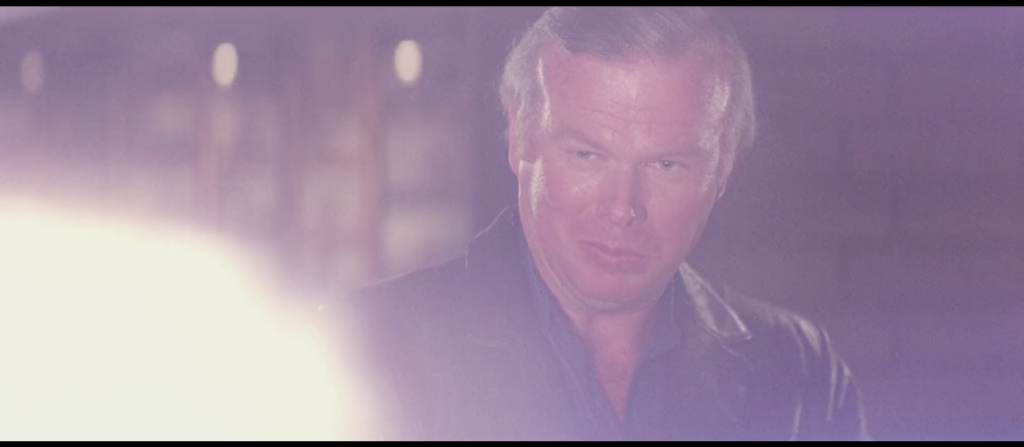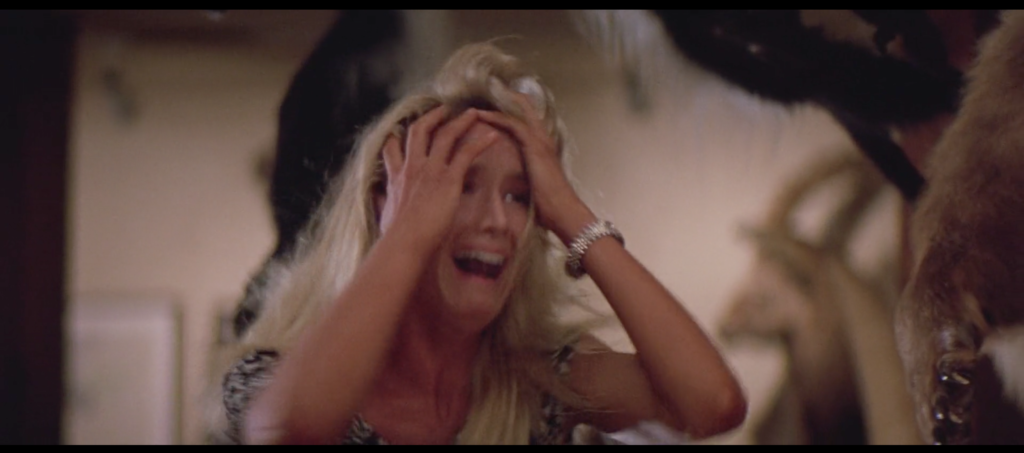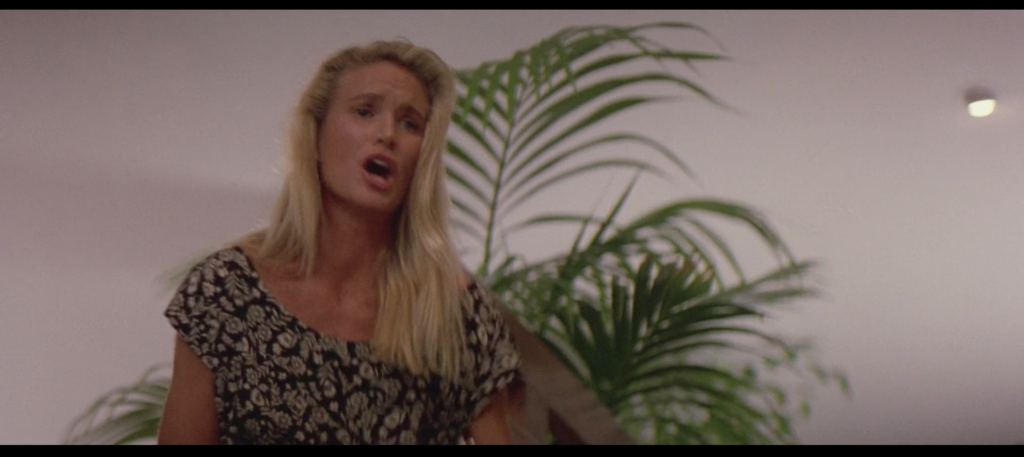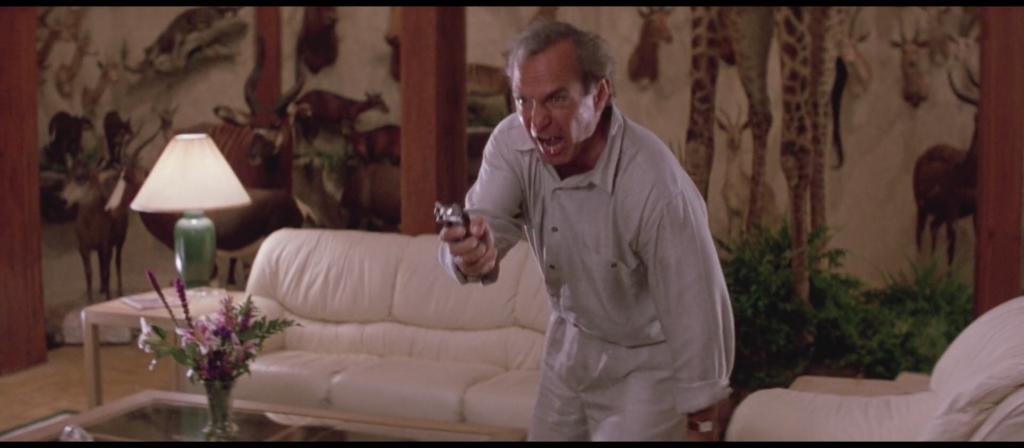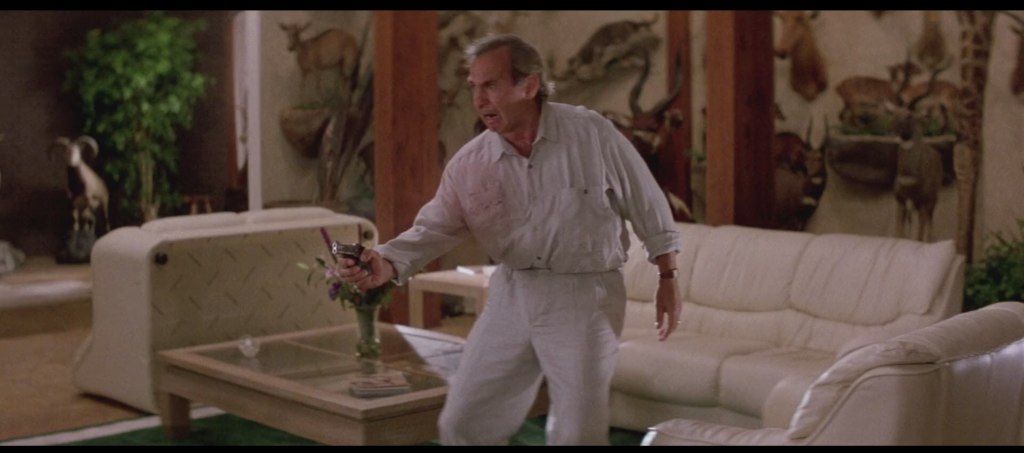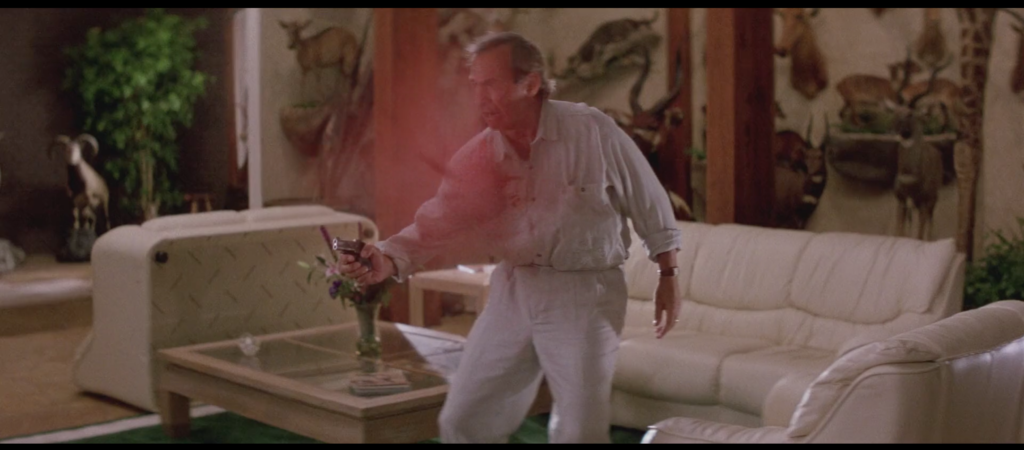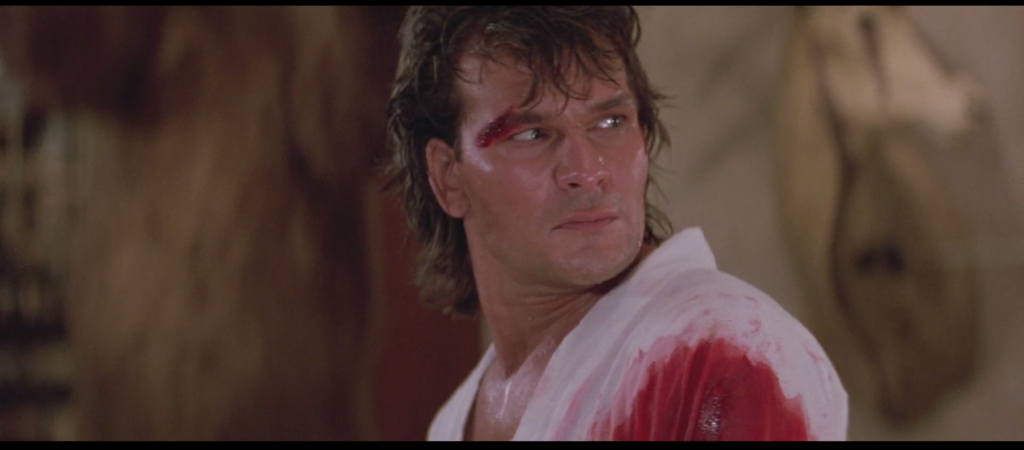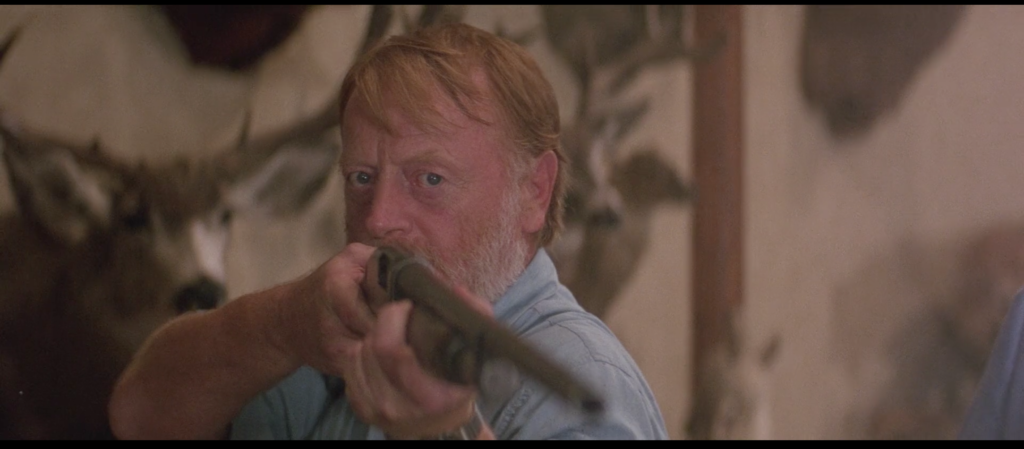What can you say about a woman who makes Dalton look like this? Denise is in so many ways the beating heart of Road House, as possessed by a film that isn’t watching its cholesterol. She is beaten by Brad Wesley and mocked as a pet off her leash by Dalton. Yet she possesses an indomitable spirit: coming on to Dalton by directly expressing her desire for him, struggling against Jimmy when he pulls her away to load her into the goons’ monster truck, listening to her favorite music despite Wesley’s disapproval, dressing like someone who’s actually pretty cool, hanging out with her girlfriends, helping out Carrie Ann in a barfight, and draping her removed dress across the face of the number-one tough guy in town.
There’s a vibrant and vital story to be told about Denise after the death of Brad Wesley, too. I’ve already daydreamed about her somehow inheriting his estate and empire in his will, preferably by duping him into signing a document by lying and saying it was a Jazzercise permission slip or something. But even if she doesn’t come away with his house and his money and his trophies and his JC Penney, imagine a Denise who’s free to be friendly with Dalton and Doc and the rest of the gang—no Wesley, no Jimmy, no Ketchum, no goons to worry about at all. She can live her life the way she wants to now. True, she won’t have Wesley to presumably provide her with the good life, but what kind of life was that anyway? It was hardly “good” if you value your physical safety and feel you should be treated like a human being. Good riddance to bad rubbish, and long live Denise, Jasper’s unsung hero.

